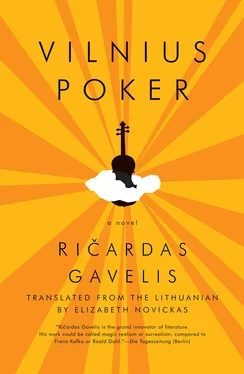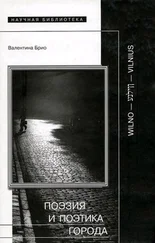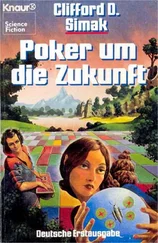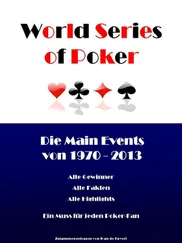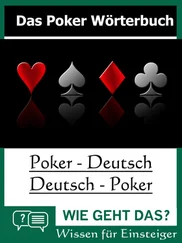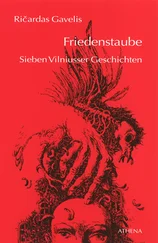There now, I pick up a small stone and throw it into the current. You’ll find the river said something, but I didn’t make it out: the cars got in the way. You need to listen to the Neris talking in the quiet of the night, or at least not here, where automobiles roar by.
I walk away from the river; I’m drawn to wander aimlessly, even though I’ve long since memorized all the byways of Vilnius. Saint Jacob’s church nestles beyond the square where Lenin rules. The church doors are securely locked, and the stairs to the bell tower are fenced off with the thickest possible grade of sheet metal, so the nonexistent Lithuanian terrorists won’t climb up during some parade and aim a shotgun above Lenin’s bronze pate — straight at the government podium. It really would be handy to shoot from here, but who aims at puppets? Except perhaps the spirit of our platoon leader Bitinas.
Lenin has turned his back to me; his arm points at the KGB building. I obey; I go straight up to it and stop for a minute, although others automatically quicken their step here: the building repels them, acts like some sort of anti-magnet. No one wants to be guarded, to be even more secure than they are. Only I don’t hurry away; this building hasn’t intimidated me for a long time, I’ve already been where this earth’s tortures seem like silly games. Only someone who has borne real torture can stand here calmly and think about the newest legend of our times: people say the KGB has outfitted bunkers under Lenin’s square, connected to the buildings by a tunnel. Times change, and so do the legends — earlier in Vilnius they would tell tales about ghosts and the accursed gold buried in churches’ naves. And about the Vilnius Basilisk.
Most likely there’s neither tunnels nor bunkers here, but there are other, invisible tunnels and cells, I know quite a bit about them. The things that matter most in this world aren’t those you can see with ordinary sight. Only the second sight perceives the essence. Looking casually, you see only one interesting thing there: a deep hole dug up in the middle of the sidewalk — for absolutely no apparent reason. Bending over, I peer down: there are no bunkers to be seen.
I’ve been gawking too long: a figure with puffy eyes dressed in canvas clothes blows his nose right by my ear and declares angrily in Polish:
“What’s the gentleman standing around for? There’s people at work here, we don’t need any gawkers!”
A Pole. One head of the multilingual dragon of Vilnius. A dragon that speaks ten languages, but doesn’t know how to speak a single one correctly. Someone from Warszawa or Kraków wouldn’t understand his accent. He spoke Polish on purpose, even though he sees that I’m Lithuanian. Many Poles still haven’t backed off; they naïvely remember the period between the wars, when they had seized Vilnius. Jokers — they seized it without even knowing why, the city always suffered economically. Vilnius, the city of Polish poets: the city of both Mickiewicz and Miłosz. Apparently, it’s the city of this bard of canvas clothes and cheap wine too. The poets wrote poems and the simpler Poles raged over Vilnius. It’s not just them; all of the dragon’s heads bite each other — the Lithuanian one, the Polish one, the Russian one, and. . No, the Jews live here quietly. Folk wisdom gives birth to myths, but there is no mythology that would reflect Vilnius. Where else would you find a dragon like this, whose heads fight among themselves, swearing in different languages?
“I’m talking to you — can’t you hear?”
The puffy little eyes stare, enraged and insolent. The righteous fury of a lumpen who’s forced to work hung over, aimed at a well-dressed idler. It’s horribly depressing and dull; around us it’s even thick with the stinking pigeons of Vilnius, and here that still-not-sober Pole too.
There’s your grandfather, he’s a hundred years old. His jaws tremble frequently, but his eyes flash lightning. A disheveled bag of bones in a corner of the hospital room, he moans and rocks his bandaged hand like a baby.
“Grandfather, can I help?”
“I can still walk,” say his angry, narrow lips, “look out for yourself.”
Staggering, he crosses the room; he is followed by perhaps ten pairs of old, feeble eyes. Along the ground hovers an oppressive smell of sweat and carbolic acid. Grandfather is making his way down the narrow corridor by now, bracing himself constantly against the wall.
“When I was fifty years old, you were born,” says his hunched back, “Now you’re fifty yourself, and who has been born to your son? Where is your son? Where are your grandchildren?”
The nauseating smell of corpses emanates from the beds lined up in the hall. The eyes of the live corpses next to the wall follow us. The hall is jammed full of patients, they moan and writhe like little worms.
“Give me a cig,” says grandfather’s trembling chin.
He blinks frequently from the smoke, but he doesn’t cough. He carefully looks to the sides, leans down over the stair railings, and finally he raises his withered head next to your ear:
“There are eleven carcasses in my room. At least seven are Poles.”
He stares at you without blinking, testing if it’s possible to trust you with the great secret.
“Three of them are pretending to be Lithuanians,” he explains further. “They’ve invented Lithuanian last names for themselves. They don’t speak Polish. But I saw through them: they’re secret Poles. The secret Poles are the worst.”
He scratches his leg with a scrawny hand, pulls up one leg of his pajamas. Grandfather’s calf is mined with deep scars, something like a rotten tree trunk.
“You know,” he says with his head hanging, “It’ll turn out they’ve slipped in among the doctors too. They’re giving me the wrong medicine on purpose!. . They’re not ready to murder me. . They want me to rot alive. . They’re taking revenge: I’ve ruined a lot of blood for those Polacks. . They saw Vilnius like they saw the back of their heads. .”
Grandfather giggles foolishly, winks at you, and nods his head, inviting you to come downstairs. He doesn’t manage to wink with one eye; he flaps both eyelids at the same time. You go through the landing below and descend to a door under the stairs. By the time you adjust to the dark, a sickening lump comes up at the back of your throat. It’s an unbelievable hospital latrine, walloping you with soured excrement. The tiles on the wall have been broken out, the floor is fouled, there are puddles stagnating everywhere. Grandfather, giggling, squats by a hideous heap of waste, an entire tower of it. It looms there like a symbol of humanity; it’s the Absolute, the Shit of All Shits, with a puffy, pulpy body. Tongues of fresh waste cover it like a mantle — all colors, from yellowish to black. You feel sick, you want to scream, but the old man just giggles insanely.
“You know a person by his shit, Vytie!” His hands grub around in the heap of waste, separating them by color. “I’ll get even with those Poles! Let them all devour their own shit. . See, these pale ones — they’re Vacelis’s. You hear, Vyt, they all gorge themselves without blinking an eye, they’re just surprised: why does that gravy have such a strange scent? A scent, you hear, it’s a scent to them! And they devour it — the more they shit, the more they devour, eh?”
The black tiles of the boulevard, laid, incidentally, during the Polish period, remain behind my back. I climb the steps to Pamėklių Hill. The Polish years, the German years, before them and after them — the Russian rule. You won’t even remember Vilnius’s Lithuanian years; it flows only in the Neris, with its waters it keeps turning and turning in a circle. I’m almost the only one climbing the stairs, everyone else is headed down. Why are they so ugly ? Surely there aren’t people like that walking around in other beautiful cities? Do faceless figures tread the streets of Bologna too? Or Lisbon’s? Do people’s innards spill out so vividly everywhere, does consciousness shape existence so clearly everywhere? I keep asking myself this, even though I know very well that They paint the landscape of both Portuguese and Italian faces. Their system didn’t show up yesterday, nor a century ago. And certainly not in Lithuania. When and where? No one knows. The sphere of the earth, speedily spinning to destruction, doesn’t bother with such metaphysical problems; it’s too busy spinning to destruction.
Читать дальше
